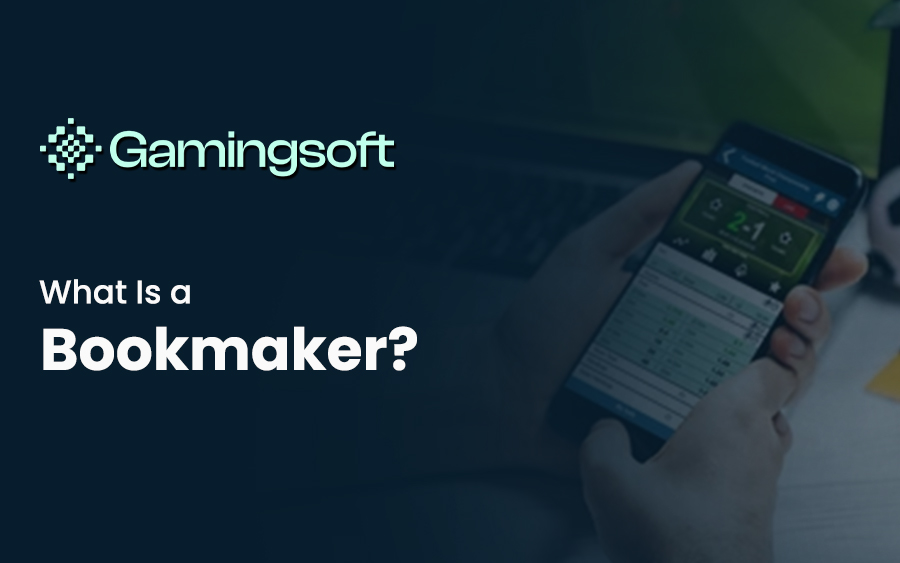When you hear people talk about betting, the term bookmaker (or bookie) often comes up. But what exactly does it mean? Whether you’re a beginner exploring the betting world or an iGaming entrepreneur planning to enter the industry, understanding bookmakers is essential.
In this article, we’ll explain what a bookmaker is, how they work, and how they differ from betting exchanges, along with their role in today’s fast-evolving iGaming market.

What Is a Bookmaker?
A bookmaker is an individual or company that accepts bets on sporting events or other outcomes. They set the odds(probabilities) and collect wagers from players, paying out winnings when bets are successful.
In simple terms:
- The bookmaker sets the odds.
- Players place bets on outcomes.
- The bookmaker profits from the margin (or “overround”) built into the odds.
Traditionally, bookmakers operated in betting shops or even informally at sports venues. Today, they are mostly online sportsbooks that use advanced technology to offer betting markets worldwide.
How Do Bookmakers Make Money?
Bookmakers don’t gamble themselves—they make a profit by carefully adjusting odds. This practice is called the overround or vig (vigorish).
For example:
- In a fair 50/50 coin toss, true odds should be 2.0 (evens).
- A bookmaker might instead offer 1.91 (10/11) for each side.
- No matter the outcome, this margin ensures the bookmaker makes money over time.
According to the UK Gambling Commission, the global sports betting market is worth over $90 billion annually(source). The majority of this is facilitated by bookmakers.
Bookmaker vs Betting Exchange
Many new bettors confuse bookmakers with betting exchanges, but they are very different:
| Feature | Bookmaker | Betting Exchange |
| Who sets the odds? | Bookmaker | Players (market-driven) |
| Betting style | Player vs bookmaker | Player vs player |
| Revenue model | Margin (overround) | Commission on winning bets |
| Example | Bet365, William Hill | Betfair, Smarkets |
The Role of Bookmakers in Modern iGaming
Bookmakers have evolved dramatically:
- Retail betting shops → Online sportsbooks → Mobile-first apps.
- Single-country markets → Globalized platforms with multi-currency support.
- Traditional odds-setting → AI-driven dynamic pricing.
For iGaming operators, integrating bookmakers is easier than ever with solutions like Gamingsoft’s API Aggregator, which provides seamless sportsbook integration with 6,000+ APIs and 410+ partners worldwide.
Advantages of Using a Bookmaker
For players:
- Simple betting experience – odds are already set.
- Bonuses & promotions like free bets.
- Wide market coverage across sports and events.
For operators:
- Trusted model proven over centuries.
- Steady revenue via margins.
- Scalability with online sportsbooks.
Disadvantages of a Bookmaker
- Odds are often less favorable compared to peer-to-peer exchanges.
- Bookmakers can limit or ban winning players who consistently beat the odds.
- Operators face regulatory pressure in many markets.
Future of Bookmakers in iGaming
As AI, automation, and real-time analytics grow, bookmakers will continue to evolve. Some trends shaping the future:
- AI-driven odds-setting for speed and accuracy.
- Micro-betting (live betting on every play in a game).
- Crypto integration for global accessibility.
Conclusion
A bookmaker is the backbone of traditional betting, providing structured odds and a straightforward betting experience. While betting exchanges have introduced new models, bookmakers remain dominant in iGaming due to their simplicity, scalability, and profitability.
For operators, success lies in choosing the right partner. With Gamingsoft’s 15+ years of expertise and cutting-edge sportsbook integrations, launching a bookmaker-powered iGaming business has never been faster—or smarter. Visit www.gamingsoft.com or con†act [email protected] today.





